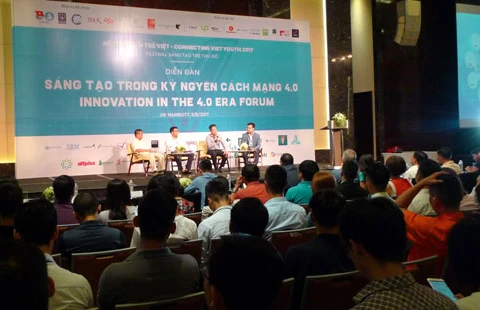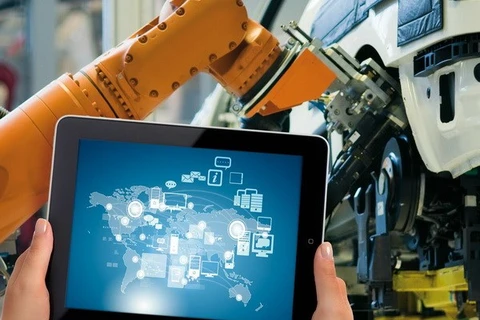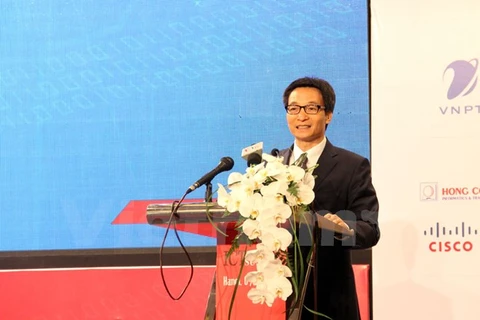Hanoi (VNA) – Overcoming the challenges of the fourth industrial revolution and making best use of the opportunities it will bring was discussed at the seventh Vietnam ICT Summit 2017, which concluded in Hanoi on September 6.
Truong Gia Binh, Chairman of the Vietnam Software and IT Services Association, said Vietnam should take drastic actions to engage in the fourth industrial revolution.
Specifically, in information-technology, the country needs to create an environment that encourages innovation, and an open legal system facilitating new-style production and business models, he said.
The first job is to roll out a national strategy on digital transformation to plan digital socio-economic development, contributing to industrialisation, modernisation and economic reform, Binh noted.
He stressed that breakthroughs should be made on the basis of digital transformation in all sectors at all levels.
Experts at the summit called for efforts from the entire political system, social organisations, businesses, universities, research institutes, scientists and society to enhance capacity to access the fourth industrial revolution.
The connectivity between State agencies, enterprises, universities and research institutes plays the core role in the work, they said.
They also pointed out the need for Vietnam to prioritise sectors that have potential in digital economic development, first of all the digital technological industry, smart agriculture and tourism.
At the same time, the Government and agencies relating to IT and communications should remove all barriers and build an ecosystem to promote innovation, start-ups and develop the private economic sector, making them drivers of the digital economy, they said.
Other tasks include developing high-quality human resources and a standardised and open data base to create a foundation for the development of digital technology, they added.-VNA
Truong Gia Binh, Chairman of the Vietnam Software and IT Services Association, said Vietnam should take drastic actions to engage in the fourth industrial revolution.
Specifically, in information-technology, the country needs to create an environment that encourages innovation, and an open legal system facilitating new-style production and business models, he said.
The first job is to roll out a national strategy on digital transformation to plan digital socio-economic development, contributing to industrialisation, modernisation and economic reform, Binh noted.
He stressed that breakthroughs should be made on the basis of digital transformation in all sectors at all levels.
Experts at the summit called for efforts from the entire political system, social organisations, businesses, universities, research institutes, scientists and society to enhance capacity to access the fourth industrial revolution.
The connectivity between State agencies, enterprises, universities and research institutes plays the core role in the work, they said.
They also pointed out the need for Vietnam to prioritise sectors that have potential in digital economic development, first of all the digital technological industry, smart agriculture and tourism.
At the same time, the Government and agencies relating to IT and communications should remove all barriers and build an ecosystem to promote innovation, start-ups and develop the private economic sector, making them drivers of the digital economy, they said.
Other tasks include developing high-quality human resources and a standardised and open data base to create a foundation for the development of digital technology, they added.-VNA
VNA
























